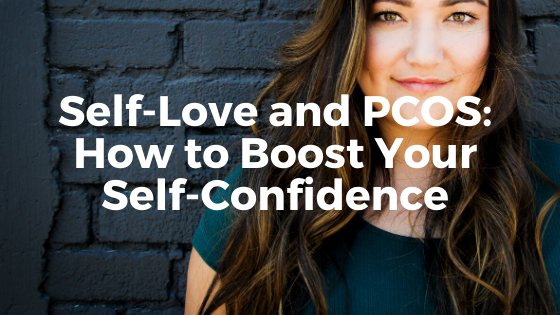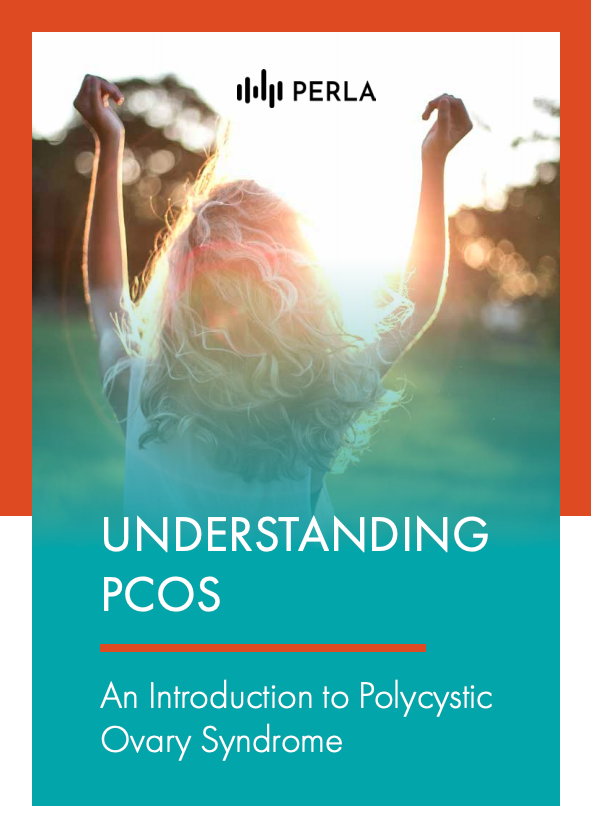Self-love is an important positive factor that can influence our lives in a lot of ways. It is the key to a healthy mind and wellbeing. But having PCOS often makes it difficult for women to see themselves in a positive light. Learn how to boost your self-confidence, nurture yourself despite your diagnosis, and overcome feelings of self-doubt and not being good enough.
Recovering Your Self-Worth
PCOS can be vicious; it does not only subject you to long-term health effects but also change your quality of life.1 Women with PCOS are more likely to experience low self-esteem, psychological distress, and eating disorders2, according to a recent community-based study. Self-esteem seems to be linked to the quality of life issues in PCOS.
PCOS can cause excessive facial and body hair, acne, hair loss, and weight gain. So it’s fairly easy to fall into the trap of insecurities and self-doubt. PCOS symptoms also affect women psychosocially and may cause them to isolate themselves from society.3
Being happy and sure of yourself is not an easy task if you have a chronic disorder. Caring for yourself physically, emotionally, and mentally is crucial. But before anything else, you should understand how PCOS affects your body image and how it can wreak havoc to your self-esteem. Understanding is the first step to change.
Body Image and PCOS
Women, in general, are more anxious about their appearance than men, and PCOS only makes matters worse. PCOS symptoms reinforce low self-esteem. It is unfortunate that these symptoms appear at the time when looking attractive becomes especially important in a young woman’s life.
If you have been diagnosed with the disorder, chances are you make negative judgments about yourself much of the time. About 50% of women with PCOS will suffer from obesity, and a small number of them find it difficult to lose weight even with diet and exercise.4
When the quality of life was analyzed among women with PCOS, these issues scored highest:5
- Concerned with infertility problems
- Embarrassed of excess body hair
- Frustrated about trying to lose weight
- Had trouble dealing with weight
- Difficulties staying at an ideal weight
- Growth of visible hair on the face
- Felt afraid of not having children
Results from the polycystic ovary syndrome health-related quality of life questionnaire (PCOSQ) showed that overall weight, infertility, and hirsutism caused the most negative impact on the quality of life and personal relationships of women with the condition. These symptoms contribute to a negative self-image, which can lead to the development of bulimia nervosa and other eating disorders.
Body image is the mental picture that you have of your own body. It is based on what you feel about your body, and not on your actual physical appearance.6 Some people are just more prone to having a negative body image. So it is important to understand the origins of your low self-esteem. Is it because of your symptoms, your personality, or other past experiences?
How To Improve Your Self-Esteem If You Have PCOS
Change Your Lifestyle
The importance of modifying your diet and lifestyle to reduce the symptoms of PCOS cannot be stressed enough. Exercise alone can bring great improvement to your physical and mental wellbeing. Talk about your doctor first about what you plan to do.
Your doctor may be able to help you deal with the struggles of starting a diet or exercise regimen. For instance, if you need a personal trainer, a dietitian, or an occupational therapist, he or she may be able to refer you to the right professionals who can give you tailored advice about what’s best for you.
Seek Help And Support
You need to find balance even if you are going through a rough period in your life. Seeking help and support is an important strategy in dealing with the negative aspects of PCOS. Support groups are available locally, but there are also support organizations online that you can contact, such as The National Polycystic Ovary Association (PCOS Challenge), Verity, Cysters, and the PCOS Awareness Association. You will benefit more from these groups if you are comfortable speaking about your personal situation and if you are interested in getting to know other women with PCOS.
Counselors, psychologists, and social workers are also available in communities. You may consult therapists in family service agencies or in private practice. Therapists are ideal if you are reluctant to talk with others and if you have trouble making decisions about your condition: how to deal with your negative body image, addressing your infertility issues, how to move forward with your life.
Embrace Your Talents And Cultivate Your Strong Points
Realizing your talents and developing your capabilities will help you feel confident about yourself. You may not be good at singing or dancing, but you are definitely good at other things. You just need to discover your strengths and cultivate them. Perhaps you are good at baking. Or you are quick at learning new languages.
Do not let your symptoms hold you back. Think of a time, probably before your diagnosis, when your self-esteem level was a little better than it is now. There may be things that you were doing differently which are worth doing again.
Treat Yourself With Kindness And Compassion
Being compassionate to yourself plays an important role in building self-confidence. Your view of yourself is not a fact but an opinion. The problem with opinions is they can be biased and inaccurate; most importantly, it can be changed.
Self-love is about loving yourself unconditionally. It means not judging yourself too harshly. Self-love is knowing you deserve the best, so you should move on from people or habits that diminish your self-worth.
As cliché as it may sound, you need to accept yourself for who you are. However, improving your self-esteem doesn’t happen overnight. It takes time. It will feel like hard work, but it will feel more natural as time goes by. You need to be willing to invest time in exploring different strategies and persist even if you fail countless times.
Sources:
- Azziz R, Carmina E, Dewailly D, Diamanti-Kandarakis E, Escobar-Morreale HF, Futterweit W, Et al. Positions statement: criteria for defining polycystic ovary syndrome as a predominantly hyperandrogenic syndrome: an Androgen Excess Society guideline. J Clin Endocrinol Metab. 2006;91:4237–45.
- Tay CT, Teede HJ, Hill B, Loxton D, Joham AE. Increased prevalence of eating disorders, low self-esteem, and psychological distress in women with polycystic ovary syndrome: a community-based cohort study. Fertility and Sterility. 2019;112(2):353-361. doi:10.1016/j.fertnstert.2019.03.027
- Açmaz G, Albayrak E, Acmaz B, et al. Level of anxiety, depression, self-esteem, social anxiety, and quality of life among the women with polycystic ovary syndrome. The Scientific World Journal. 2013;2013:1-7. doi:10.1155/2013/851815
- Norman RJ, Davies MJ, Lord J, Moran LJ. The role of lifestyle modification in polycystic ovary syndrome. Trends Endocrinol Metab 2002; 13:251–257.
- Jones GL, Benes K, Clark TL, Denham R et al. The polycystic ovary syndrome health-related quality of life questionnaire (PCOSQ): a validation. Hum Reprod 2004; 19:371–377
- Freeman C. The Complete Guide to Overcoming Eating Disorders, Perfectionism and Low Self-Esteem.; 2013. Accessed July 9, 2020. http://www.dawsonera.com/depp/reader/protected/external/AbstractView/S9781472107374


